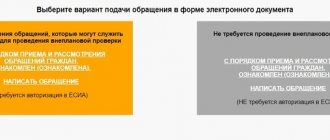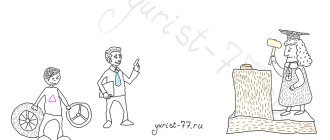The procedure for depriving a father of parental rights:
The decision to deprive parental rights is made by the court, this is stated in Article 70 of the Family Code of the Russian Federation.
The following persons have the right to file a claim for deprivation of parental rights:
- Prosecutor;
- One of the parents, or a person replacing them (guardian, adoptive parents, guardian or adoptive parent);
- Bodies entrusted by law with powers to protect the rights of minor children (organizations for orphans without parental care, guardianship and trusteeship authorities, etc.).
The list of persons who have the right to file a claim in court is not exhaustive.
ATTENTION !!!! Internal affairs bodies, executive authorities, interested parties, close relatives of the child, teachers, neighbors do not have the right to directly apply to the court with claims for deprivation of parental rights, but can petition the prosecutor, other bodies and organizations for this.
The prosecutor and the guardianship and trusteeship authority take part in the court hearing when considering a claim for deprivation of parental rights. The guardianship authority in court gives its opinion on whether or not it is advisable to deprive a parent of parental rights in relation to a particular child.
Deprivation of parental rights by a court does not relieve parents from the need to support their child; this is stated in paragraph 2 of Article 71 of the Family Code of the Russian Federation. As part of the consideration of the claim, the court also decides the issue of collecting alimony from parents deprived of parental rights. It does not matter whether such a claim is brought or not, the decision to collect alimony is made by the court.
IMPORTANT !!!! When a court makes a decision on deprivation of parental rights, it must indicate the person to whom the right to place the child in foster care is transferred.
Examples of deprivation of parental rights
The most common reasons for deprivation of the rights of a mother or father are a parent’s evasion of responsibilities, alcohol addiction of one of them (possibly two), and drug addiction.
Here is one example. The court receives an application from the children's grandmother with a request to deprive the father and mother of the rights and obligations to support their offspring. The statement states that parents who are divorced neglect their responsibilities, do not take care of their children, and are not interested in their fate. For 8 years, the children are fully supported and raised by their grandmother. The mother has severe alcoholism. The father does not want to support the children.
Attached to the application are documents about the mother being brought to the police, protocols of conversations with the guardianship authorities and commissions for the protection of children's rights with the father and mother about the need to support and raise the child. Also attached are certificates from the bailiff service department about the amount of alimony debt owed by the father.
The guardianship authorities involve witnesses in the case: teachers of the school where the children study, citizens confirm that they have never seen either the mother or father of these students during their studies at school. Also, the guardianship authorities submit reports of inspection of the housing of the children’s parents, from which it follows:
- that in both apartments there are no conditions for children, and children do not live there;
- testimony from neighbors about the immoral behavior of parents;
- providing a certificate from the housing department stating that the father has not been working anywhere for a long time and is being supported by his partner.
The court decides to deprive both the mother and father of these children of their rights, since they did nothing as parents, did not fulfill their responsibilities towards the children and did not pay child support.
Cases of grandparents raising children with living parents are not so rare. Sometimes parents transfer the right of custody to elders if they are forced to go to work in places that are not suitable for the normal development of children, and they have the right to do so. But in this case, both mother and father could hand over their child to their grandparents to raise, forgetting about their responsibilities.
In this matter, the grandmother manages to obtain custody of her grandchildren, and they continue to live in their usual place. The grandmother goes to the deprivation of parental rights so that the parents do not interfere in the lives of their grandchildren, do not demand support from them as disabled, and do not want to meet if parental instincts unexpectedly manifest themselves.
The court acts in the interests of the child, since the parents do not want to deal with maintenance and upbringing, and the best solution for any child would be to grow up under the guardianship of another relative or, in the event of his death, the state.
In Russian judicial practice, cases of deprivation of fathers' rights are quite common. Wrong lifestyle, evasion of supporting offspring, abuse of one’s own rights, inappropriate and cruel treatment - children’s interests always come first.
Consequences of deprivation of parental rights
The following are the consequences of deprivation of parental rights:
- Deprivation of rights affects the social status of the parent (they lose the right to receive benefits and allowances for those with children);
- The property rights of parents are terminated (the right of inheritance by law, the right to make transactions for young children, Article 28 of the Civil Code of the Russian Federation, to receive a tax deduction for children);
- Non-property legal relations between parents and children are terminated (parents lose their rights to upbringing, communication, education, residence, information from educational institutions, medical institutions).
ATTENTION !!!! Parents deprived of parental rights cannot be adoptive parents, foster parents, or guardians (trustees).
IMPORTANT !!!! The court may impose liability for damage on a parent deprived of parental rights, for damage caused by his minor child, within three years after the court makes a decision to deprive parental rights. In cases where the harm was caused by improper performance of parental responsibilities, Article 1075 of the Civil Code of the Russian Federation.
Inheritance after deprivation of parental rights
After the procedure for depriving his parents of parental rights, a child does not lose his rights to property. Including the right to inherit property, being the heir of the first priority.
Children whose parents are deprived of rights in relation to them can inherit property both by law and by will.
The origin of a child may become a controversial issue if his mother abandoned him in the medical institution where he was born. The documents on which this occurred may be inaccessible, lost, or their location may be unknown.
Parents who are deprived of parental rights do not inherit the child's property and lose all rights associated with their relationship.
Procedure for deprivation of parental rights
The decision to deprive parental rights is made by the court, this is stated in Article 70 of the Family Code of the Russian Federation.
The following persons have the right to file a claim for deprivation of parental rights:
- Prosecutor;
- One of the parents, or a person replacing them (guardian, adoptive parents, guardian or adoptive parent);
- Bodies entrusted by law with powers to protect the rights of minor children (organizations for orphans without parental care, guardianship and trusteeship authorities, etc.).
The list of persons who have the right to file a claim in court is not exhaustive.
ATTENTION !!!! Internal affairs bodies, executive authorities, interested parties, close relatives of the child, teachers, neighbors do not have the right to directly apply to the court with claims for deprivation of parental rights, but can petition the prosecutor, other bodies and organizations for this.
The prosecutor and the guardianship and trusteeship authority take part in the court hearing when considering a claim for deprivation of parental rights. The guardianship authority in court gives its opinion on whether or not it is advisable to deprive a parent of parental rights in relation to a particular child.
Deprivation of parental rights by a court does not relieve parents from the need to support their child; this is stated in paragraph 2 of Article 71 of the Family Code of the Russian Federation. As part of the consideration of the claim, the court also decides the issue of collecting alimony from parents deprived of parental rights. It does not matter whether such a claim is brought or not, the decision to collect alimony is made by the court.
IMPORTANT !!!! When a court makes a decision on deprivation of parental rights, it must indicate the person to whom the right to place the child in foster care is transferred.
What is termination of parental rights?
Termination of parental rights is the deprivation of a parent's right to raise their child. In essence, this is a ban on cohabitation with the child, and therefore a ban on requiring the child to carry out his duties in the future.
Citizens deprived of parental rights lose all rights based on the fact of relationship with children. Legally, they are no longer considered his parents. The children's descendants will not be their relatives. Such parents do not have the right to claim inheritance, receive maintenance, and are deprived of benefits and allowances associated with having children.
Only a court can deprive parental rights. To do this, the interested person draws up and submits a statement of claim for deprivation of parental rights. If a citizen has several children, then deprivation of rights in relation to one of them does not deprive rights in relation to others. That is, each child needs its own court decision.
Consequences of deprivation of parental rights
The following are the consequences of deprivation of parental rights:
- Deprivation of rights affects the social status of the parent (they lose the right to receive benefits and allowances for those with children);
- The property rights of parents are terminated (the right of inheritance by law, the right to make transactions for young children, Article 28 of the Civil Code of the Russian Federation, to receive a tax deduction for children);
- Non-property legal relations between parents and children are terminated (parents lose their rights to upbringing, communication, education, residence, information from educational institutions, medical institutions).
In addition, parents deprived of parental rights cannot be adoptive parents, foster parents, or guardians (trustees).
IMPORTANT !!!! The court may impose liability for damage on a parent deprived of parental rights, for damage caused by his minor child, within three years after the court makes a decision to deprive parental rights. In cases where the harm was caused by improper performance of parental responsibilities, Article 1075 of the Civil Code of the Russian Federation
ATTENTION !!!! Only a court can deprive parental rights, which is reflected in Article 70 of the Family Code of the Russian Federation.
Deprivation of parental rights is a last resort measure for punishing parents who neglect or abuse their rights. In these cases, the court, imposing this measure of responsibility, came to the conclusion that other measures of influence and punishment would not be able to protect the rights of the child.
ATTENTION !!!! Guardians, trustees, and adoptive parents cannot be deprived of parental rights. Only parents can be deprived of parental rights.
The law provides the following grounds for deprivation of parental rights:
Evasion of parents from fulfilling their duties, including evasion of child support.
This basis for deprivation of parental rights is characterized by unlawful inaction towards the child:
- Leaving unattended or in danger (125 of the Criminal Code of the Russian Federation);
- Lack of concern for their physical and moral development;
- Training, preparation for social work.
Refusal, without good reason, to take your child from a maternity hospital or department, other medical institution, social security institution, or medical institution.
Good reasons in the law include:
- Extremely serious health condition of a close relative;
- Difficult financial situation;
- A severe form of illness in a child requiring care.
Abuse of parental rights.
These illegal actions always have an intentional form of guilt and are expressed in the following:
- Drinking alcoholic beverages;
- Inclination to use drugs;
- Forced begging;
- Inclination to steal;
- Obstruction in children's learning.
ATTENTION !!!! When parental rights are abused, the court does not provide an exhaustive list. The issue of abuse of parental rights and deprivation of parental rights on this basis remains open.
Abuse of a child, the use of both physical and mental violence, an attempt on their sexual integrity.
The law defines physical violence as (beatings, wounds or injuries).
Mental violence is defined by law as follows:
- causing deep mental trauma;
- psychological cruelty to a child;
- negative long-term impact on the child’s mental state.
Mental impact can manifest itself in humiliation, insults or threats, and remarks in an offensive form. Educational measures (refusal to buy toys, watch television broadcasts) will not be grounds for deprivation of parental rights.
Attempt on sexual integrity is any form of sexual influence on a child. Attempts on sexual integrity are not only grounds for deprivation of parental rights, but also criminal prosecution under Articles 135,133,132,131 of the Criminal Code of the Russian Federation;
Parental illness with drug addiction or chronic alcoholism.
Documents confirming the disease of drug addiction or alcoholism are accompanied by a certificate from a medical institution (narcological dispensary) confirming the presence of chronic alcoholism, or a certificate of registration at a psychoneurological dispensary. The certificate must reflect information about the course of treatment; this is necessary so that the person who is deprived of parental rights is not deregistered by the time the court makes a decision.
Committing a crime against the life and health of your children, or against the health and life of your spouse.
Grounds for deprivation of parental rights
The grounds for deprivation of parental rights are specified in Article 69 of the Family Code of the Russian Federation, these include:
- evasion of parents' parental responsibilities;
- malicious evasion of alimony payments;
- refusal to pick up a child from a maternity hospital or a special institution for children;
- abuse of parental rights;
- child abuse;
- the presence of chronic alcoholism or drug addiction;
- committing a deliberate crime against the life or health of one’s children or against the life or health of a spouse, another parent of another family member.
This is an exhaustive list of grounds for deprivation of parental rights. The text of the statement of claim must indicate one or more of these grounds. In addition, it is necessary to describe in detail what the grounds are in relation to a particular case, and provide the most typical examples.





